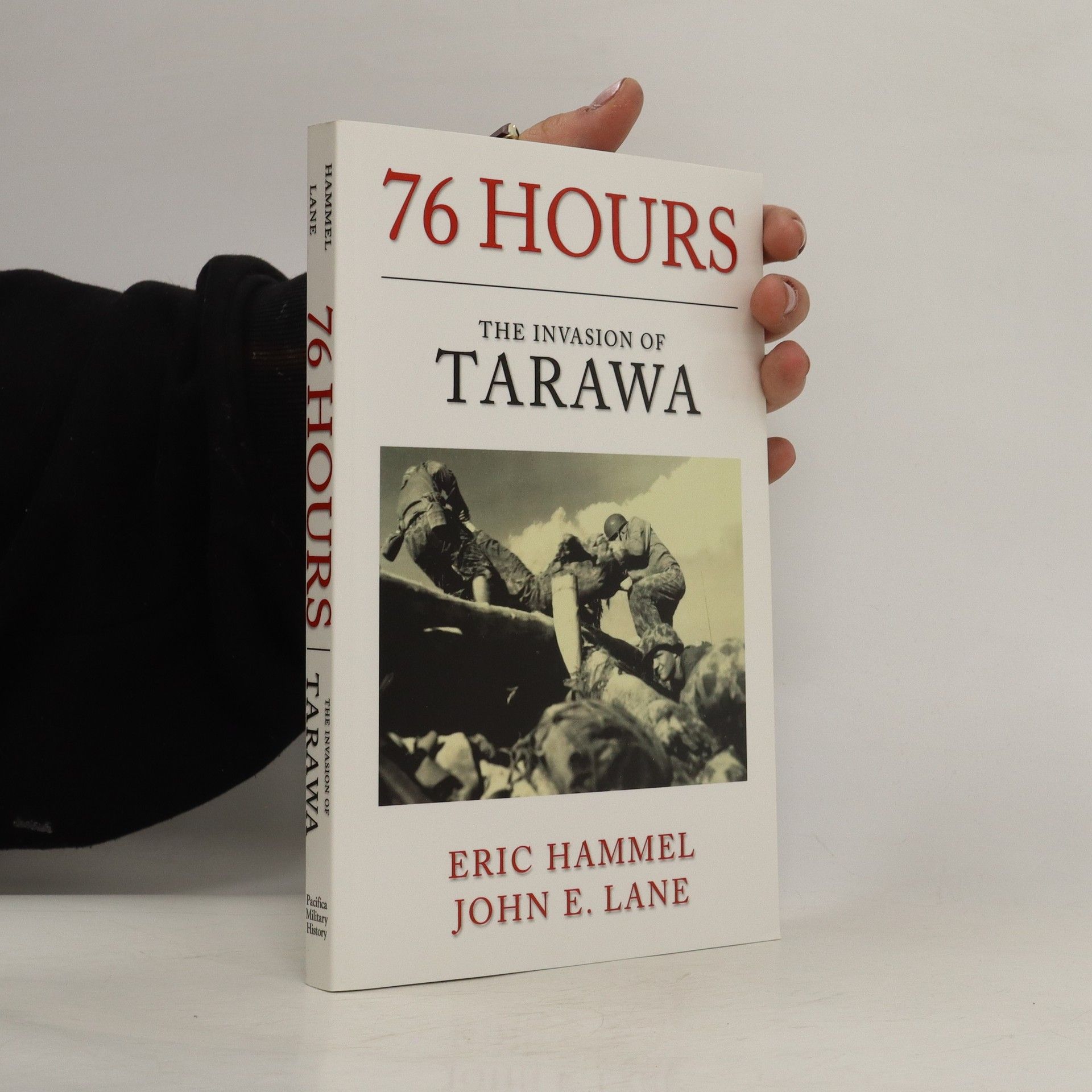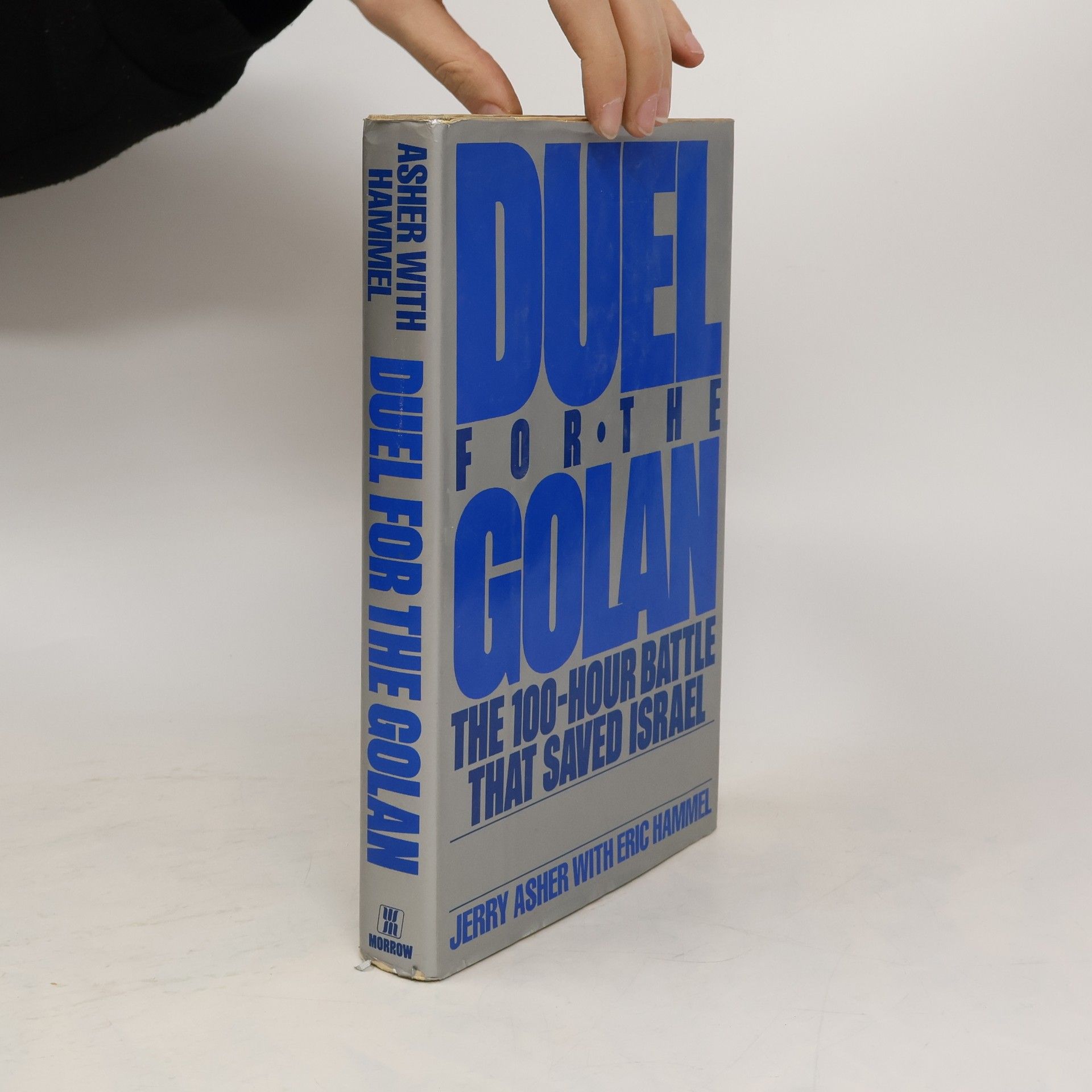Duel for the Golan
- 288 pages
- 11 hours of reading
This author crafts compelling military histories, inspired from a young age by a seminal narrative work. His approach masterfully blends official records with the vivid recollections of those who experienced events firsthand, creating an accessible and immersive reading experience. He focuses on meticulously reconstructing key historical moments, aiming to bring the reader directly into the past. His writing is characterized by thorough research and a commitment to delivering accurate and engaging historical accounts.




"For 40 years from 1961, the late Eric Hammel interviewed more than 150 American participants in the air campaign at Guadalcanal, none of whom are still alive. These interviews are the most comprehensive first-person accounts of the battle assembled by any historian. More importantly, they involved the junior officers and enlisted men whose stories and memories were not part of the official history, thus providing a unique insight. The battle of Guadalcanal was the first offensive operation undertaken by the US and its allies in the Pacific War. "Cactus," the code name for the island, became a sinkhole for Japanese air and naval power, experienced forces whose losses could never be made good. The three months of air battles between August 20, 1942, when the first Marine air unit arrived on the island, and November 15, when the last enemy attempt to retake the island was defeated, were perhaps the most important of the Pacific War. After November 15, 1942, the US never looked back as its forces moved across the Pacific to the war's inevitable conclusion. The Cactus Air Force is a joint project between the late Eric Hammel and Pacific War expert Thomas McKelvey Cleaver, and is unlike any other of the many histories of this event that have been published over the years."--Amazon.
On November 20, 1943, the U.S. 2d Marine Division launched a modern amphibious assault on Betio Island in Tarawa Atoll, facing a well-fortified enemy. Despite assurances from the admirals that a massive naval and air bombardment would decimate Japanese defenses, the Marines encountered fierce resistance as they landed. The initial assault quickly devolved into chaos, with many Marines killed or wounded before they could even disembark from their amphibious tractors. The operation stalled at the water's edge, and follow-up waves faced devastating losses as they struggled to wade through fire-swept, knee-deep water, exacerbated by miscalculations in tidal conditions. The battle for Betio unfolded with harrowing intensity, showcasing the valor of American troops as they advanced step by step across the island against what historians consider some of the most formidable Japanese defenses in the Pacific War. The narrative captures the tragedy and near defeat that transformed into an epic victory, highlighting the indomitable human spirit of those who fought.
Studie o jedné z rozhodujících epizod americko-japonské války v jižním Pacifiku nás seznamuje nejen s boji v nezvyklém prostředí, ale i do té doby neznámým fenoménem válečné neurózy, který i z nezraněných činil vojáky nepoužitelné v dalších bojích. Předností studie o jedné, byť v podstatě rozhodující epizodě války Američanů s Japonci v jižním Pacifiku je nejen podrobné vylíčení bojů na Nové Georgii, v prostředí pro nás tak exotickém, a pro americké vojáky tak strastiplném, ale i to, že se zabývá dopadem zcela odlišného způsobu boje na psychiku lidí. Autor se podrobně zabývá jevem, který se neprojevil na evropských či afrických bojištích, a který američtí lékaři nazvali vyčerpáním z boje či válečnou neurózou. Fenoménu, který se opakoval o dvacet let později ve Vietnamu. Proto má kniha širší platnost, než jen historická výseč z roku 1943. Obsahuje dokumentární fotografie.